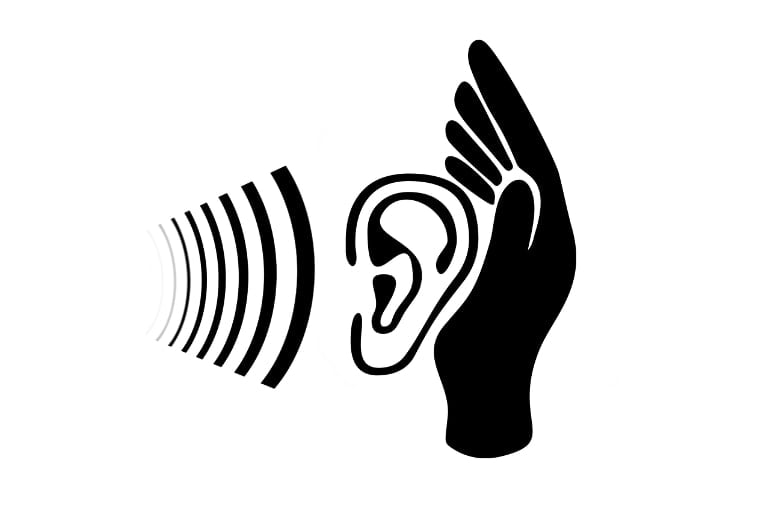Summary: Study reports a new digital polytherapeutic that delivers white noise could significantly improve symptoms for those with tinnitus.
Source: University of Auckland
After 20 years searching for a cure for tinnitus, researchers at the University of Auckland are excited by ‘encouraging results’ from a clinical trial of a mobile-phone-based therapy.
The study randomised 61 patients to one of two treatments, the prototype of the new ‘digital polytherapeutic’ or a popular self-help app producing white noise.
On average, the group with the polytherapeutic (31 people) showed clinically significant improvements at 12 weeks, while the other group (30 people) did not. The results have just been published in Frontiers in Neurology.
“This is more significant than some of our earlier work and is likely to have a direct impact on future treatment of tinnitus,” Associate Professor in Audiology Grant Searchfield says.
Key to the new treatment is an initial assessment by an audiologist who develops the personalised treatment plan, combining a range of digital tools, based on the individual’s experience of tinnitus.
“Earlier trials have found white noise, goal-based counselling, goal-oriented games and other technology-based therapies are effective for some people some of the time,” says Dr Searchfield. “This is quicker and more effective, taking 12 weeks rather than 12 months for more individuals to gain some control.”
There is no pill that can cure tinnitus. “What this therapy does is essentially rewire the brain in a way that de-emphasises the sound of the tinnitus to a background noise that has no meaning or relevance to the listener,” Dr Searchfield says.
Audiology research fellow Dr Phil Sanders says the results are exciting and he found running the trial personally rewarding.

“Sixty-five percent of participants reported an improvement. For some people, it was life-changing – where tinnitus was taking over their lives and attention.”
Some people didn’t notice an improvement and their feedback will inform further personalisation, Dr Sanders says.
Tinnitus is a phantom noise and its causes are complex. It has so far defied successful treatment.
While most people experience tinnitus, or ringing in the ears at least on occasions, around five percent experience it to a distressing degree. Impacts can include trouble sleeping, difficulty carrying out daily tasks and depression.
Dr Searchfield says seeing his patients’ distress and having no effective treatment to offer inspired his research. “I wanted to make a difference.”
The next step will be to refine the prototype and proceed to larger local and international trials with a view to FDA approval.
The researchers hope the app will be clinically available in around six months.
About this tinnitus research news
Author: Gilbert Wong
Source: University of Auckland
Contact: Gilbert Wong – University of Auckland
Image: The image is in the public domain
Original Research: Open access.
“A randomized single-blind controlled trial of a prototype digital polytherapeutic for tinnitus” by Phil Sanders et al. Frontiers in Neurology
Abstract
A randomized single-blind controlled trial of a prototype digital polytherapeutic for tinnitus
Objective: This randomized single-blind controlled trial tested the hypothesis that a prototype digital therapeutic developed to provide goal-based counseling with personalized passive and active game-based sound therapy would provide superior tinnitus outcomes, and similar usability, to a popular passive sound therapy app over a 12 week trial period.
Methods: The digital therapeutic consisted of an app for iPhone or Android smartphone, Bluetooth bone conduction headphones, neck pillow speaker, and a cloud-based clinician dashboard to enable messaging and app personalization. The control app was a popular self-help passive sound therapy app called White Noise Lite (WN). The primary outcome measure was clinically meaningful change in Tinnitus Functional Index (TFI) between baseline and 12 weeks of therapy.
Secondary tinnitus measures were the TFI total score and subscales across sessions, rating scales and the Client Oriented Scale of Improvement in Tinnitus (COSIT). Usability of the US and WN interventions were assessed using the System Usability Scale (SUS) and the mHealth App Usability Questionnaire (MAUQ). Ninety-eight participants who were smartphone app users and had chronic moderate-severe tinnitus (>6 months, TFI score > 40) were enrolled and were randomly allocated to one of the intervention groups. Thirty-one participants in the USL group and 30 in the WN group completed 12 weeks of trial.
Results: Mean changes in TFI for the USL group at 6 (16.36, SD 17.96) and 12 weeks (17.83 points, SD 19.87) were clinically meaningful (>13 points reduction), the mean change in WN scores were not clinically meaningful (6 weeks 10.77, SD 18.53; 12 weeks 10.12 points, SD 21.36). A statistically higher proportion of USL participants achieved meaningful TFI change at 6 weeks (55%) and 12 weeks (65%) than the WN group at 6 weeks (33%) and 12 weeks (43%). Mean TFI, rating and COSIT scores favored the US group but were not statistically different from WN. Usability measures were similar for both groups.
Conclusions: The USL group demonstrated a higher proportion of responders than the WN group. The usability of the USL therapeutic was similar to the established WN app. The digital polytherapeutic demonstrated significant benefit for tinnitus reduction supporting further development.







